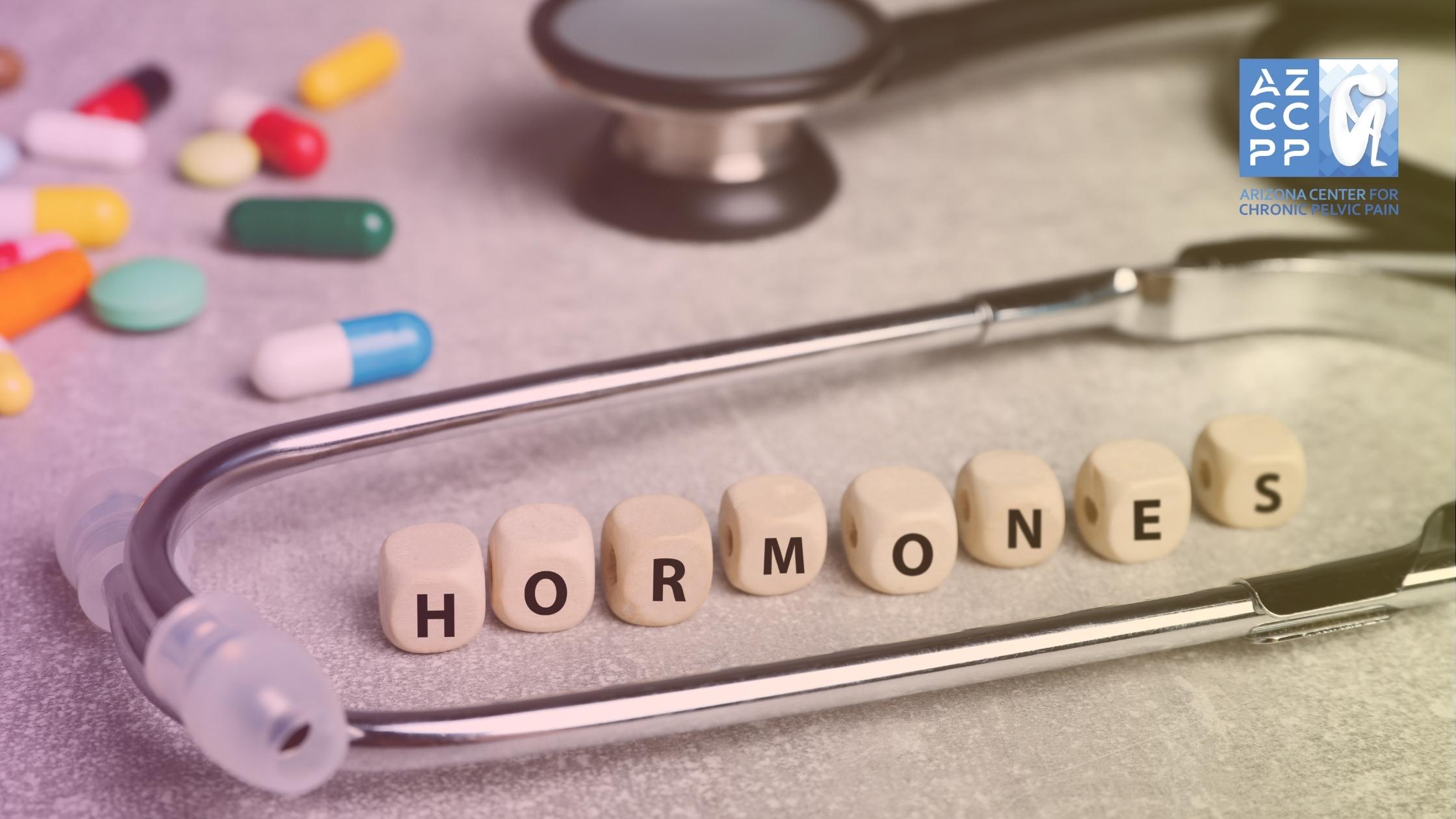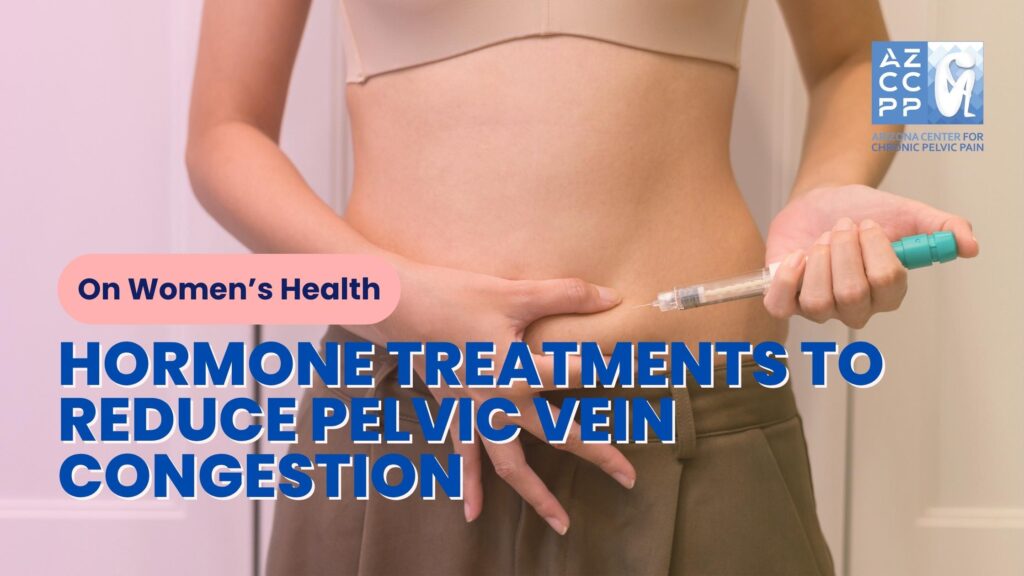Pelvic vein congestion (PVC) is a prevalent yet often underdiagnosed condition affecting women. Characterized by enlarged veins in the pelvic region, it can lead to chronic pelvic pain, discomfort during intercourse, and a range of other debilitating symptoms. While several treatment options exist, hormone therapy has emerged as a promising avenue for managing PVC and improving quality of life. In this comprehensive guide, we delve into the world of hormone treatments for PVC, exploring their mechanisms, benefits, risks, and considerations for optimal management.
Understanding Pelvic Vein Congestion (PVC)
PVC arises due to the dilation and dysfunction of veins in the pelvis, primarily affecting the ovarian and internal iliac veins. This can result in blood pooling, leading to increased pressure and a cascade of symptoms. Hormonal fluctuations, particularly elevated estrogen levels, are believed to play a role in the development and progression of PVC.
The Role of Hormones in PVC Treatment

Hormones exert a significant influence on vascular health. Estrogen, in particular, can affect the tone and elasticity of veins. Elevated estrogen levels, as seen in certain phases of the menstrual cycle or during hormone replacement therapy (HRT), can contribute to vein dilation and exacerbate PVC symptoms.
Hormone Therapies for Pelvic Vein Congestion
Hormone therapy aims to modulate hormonal imbalances and alleviate the symptoms associated with PVC. Several types of hormone treatments have been explored:
-
Gonadotropin-Releasing Hormone (GnRH) Agonists
GnRH agonists suppress ovarian function, leading to a decrease in estrogen production. This can help reduce vein dilation and alleviate pelvic pain. However, GnRH agonists are typically used for short-term treatment due to their potential side effects.
-
Progestins
Progestins, synthetic forms of progesterone, have shown promise in reducing pelvic pain associated with PVC. They can help counter the effects of estrogen on veins and offer a less invasive alternative to surgical interventions.
-
Combined Oral Contraceptives (COCs)
COCs, containing both estrogen and progestin, may be considered for women with PVC who also require contraception. While COCs may not directly target the underlying cause of PVC, they can help regulate menstrual cycles and potentially alleviate associated symptoms.
-
Other Hormonal Therapies
Other hormonal therapies, such as danazol and dienogest, have also been investigated for their potential benefits in managing PVC. However, more research is needed to establish their efficacy and safety profiles.
READ MORE: Pelvic Congestion Syndrome in Women: 10 Common Questions Answered
Pelvic Congestion Syndrome in Women: 10 Common Questions Answered
Benefits and Risks of Hormone Therapy
Hormone therapy offers several potential benefits for women with PVC, including:
- Reduced pelvic pain: Hormonal treatments can significantly alleviate chronic pelvic pain, a hallmark symptom of PVC.
- Improved quality of life: By addressing pelvic pain and other symptoms, hormone therapy can enhance overall well-being and daily functioning.
- Non-invasive option: Hormone therapy provides a non-surgical approach for managing PVC, making it a less invasive alternative for many women.
However, hormone therapy is not without its risks and potential side effects. These can include:
- Menopausal symptoms: GnRH agonists can induce menopausal symptoms, such as hot flashes and vaginal dryness.
- Other side effects: Progestins and COCs may cause side effects like nausea, breast tenderness, and mood changes.
- Long-term risks: The long-term risks associated with certain hormone therapies, such as GnRH agonists, are still under investigation.
READ MORE: Best Hormonal Therapies for Irregular Periods and Menstrual Pain
Best Hormonal Therapies for Irregular Periods and Menstrual Pain
Choosing the Right Hormone Therapy for PVC Treatment
The choice of hormone therapy for PVC depends on various factors, including the severity of symptoms, individual preferences, and overall health status. It is crucial to consult with a healthcare provider to discuss the available options and determine the most suitable treatment plan.
Considerations for Optimal Management
- Individualized Approach: PVC management should be tailored to each woman’s specific needs and circumstances.
- Comprehensive Evaluation: A thorough assessment, including imaging studies, is essential to confirm the diagnosis of PVC and rule out other conditions.
- Multidisciplinary Care: Collaboration between gynecologists, interventional radiologists, and pain specialists can ensure comprehensive care for women with PVC.
- Lifestyle Modifications: Adopting healthy lifestyle habits, such as maintaining a healthy weight and exercising regularly, can complement hormone therapy and improve overall outcomes.
READ MORE: Understanding Pelvic Congestion Syndrome and the Role of Vein Embolization
Understanding Pelvic Congestion Syndrome and the Role of Vein Embolization
Conclusion
Hormone treatments offer a promising avenue for managing pelvic vein congestion and improving the lives of women affected by this condition. By modulating hormonal imbalances and targeting the underlying mechanisms of PVC, these therapies can alleviate pelvic pain, enhance quality of life, and provide a less invasive alternative to surgical interventions.
However, it is crucial to consult with a healthcare provider to discuss the risks and benefits of hormone therapy and develop a personalized treatment plan that aligns with individual needs and preferences. With comprehensive care and a holistic approach, women with PVC can experience significant relief and regain control of their lives.

Partner with AZCCPP for Expert Pelvic Pain Treatment
Struggling with pelvic vein congestion? The Arizona Center for Chronic Pelvic Pain, led by Michael Hibner, MD, PhD, provides specialized care to address your unique symptoms. From advanced hormonal therapies to minimally invasive surgery, our pelvic pain expert team creates customized pelvic pain treatment plans to restore your health and quality of life. We understand the challenges of chronic pelvic pain in women and are committed to guiding you every step of the way.
With decades of expertise in pelvic pain treatment, AZCCPP is Arizona’s premier destination for women’s pelvic health. Our compassionate, multidisciplinary approach ensures holistic care that addresses both physical and emotional needs. We’re dedicated to helping you achieve lasting relief and confidence in your health journey.
Ready to take control? Contact the AZCCPP today at (480) 599-9682 or email [email protected]. You may also check out AZCCPP on YouTube for more questions that need answers with Dr. Michael Hibner.
We proudly serve the Phoenix metro area, including Scottsdale, Chandler, and Mesa. Follow us on social media for inspiring patient stories and expert insights. Let our pelvic pain experts help you overcome chronic pelvic pain—schedule your consultation now!

